Special report: Resilience in tough times for Liverpool theatres
New financial figures from the Everyman /Playhouse and Royal Court in Liverpool show audiences are returning to theatres – but the closure of the Epstein casts a shadow on the sector. Tony McDonough reports
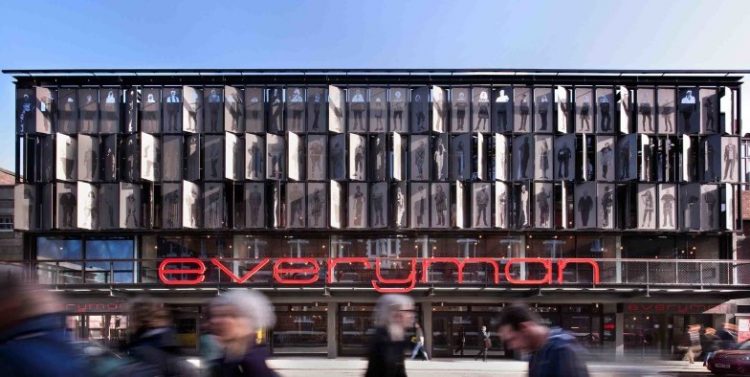
Audiences are returning to theatres following the dark days of the pandemic, figures from two Liverpool theatre businesses show – but the sector continues to face significant challenges.
More people are buying tickets and theatres appear to be financially resilient. But the closure of the Epstein Theatre in Liverpool in June 2023 is an indication of the huge financial pressures faced by the industry.
In December the Liverpool and Merseyside Theatres Trust (LMTT), which runs the Everyman and Playhouse, published its annual accounts for the 12 months to March 31, 2023, on Companies House.
Shortly afterwards the Royal Court published its accounts for the same period. Both organisations are registered charities.
LMTT audience numbers for the period were up 57% to 112,043. This is a healthy recovery from COVID but the number still remains below the pre-pandemic figure of around 130,000.
November 2022 to January 2023 saw the theatres enjoy their most successful Christmas seasons to date. The Rock ’n Roll Panto Red Riding Hood at the Everyman and Six at the Playhouse were both big hits with audiences.
In addition to a long list of in-house productions both theatres hosted visiting work. These included Fantastically Great Women Who Changed the World and The Tiger That Came to Tea at the Playhouse and A Lovely Word Poetry Festival and Drunk Women Solving Crime at the Everyman.
Located in Roe Street in the city centre, the Royal Court has prospered in recent years thanks to the success of a number of Scouse-themed productions and has established a reputation for providing lively, and sometimes raucous, nights out.
Thanks to the popularity of shows including Mam I’m ‘Ere by Stephen Fletcher, You’ll Never Walk Alone by Nicky Allt and Bingo Star by Iain Christie, annual ticket sales for the main stage came in at 168,620 which is back to pre-pandemic levels.
In its annual report the Royal Court said: “2023 was the first full year of programme since COVID for the theatre.
“Audience figures for main house shows returned to pre-COVID levels while audiences for studio shows continued to grow. Work continued to develop new productions for the main stage.”
In an interview with LBN, LMTT chief executive Mark Da Vanzo, said: “In broad terms we are still seeing a positive trajectory. We are not back at pre-COVID audience levels quite yet, but we are getting there. So I would expect to see our audience levels increase slightly on last year.
“Some vulnerable people are still reluctant since COVID to put themselves in with large groups of people inside.
“With some more populist shows, particularly family titles where people know what they are going to get, that is where we see the strongest audience resilience.
“But when it comes to new work, the type of stuff we specialise in at the Everyman, there is more of a risk for audiences. People might not recognise the title or the playwright and that is where we are seeing a slower return of audience confidence.
“During the pandemic people got out of the habit of going. There was a sense where they might want more of a guarantee of having a good night out.”
He added: “On the whole the traditional audience is a slightly older demographic and of course that was the demographic hit the hardest during COVID and was more reluctant to go to the theatre. That is the one that is slowest to return.”
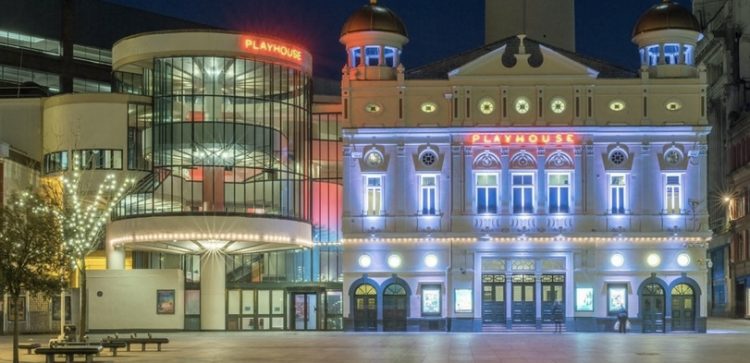
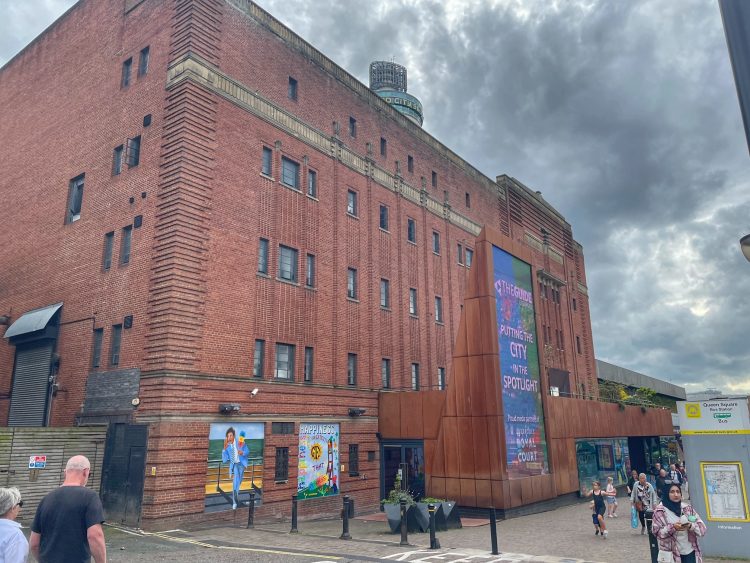
Financially, both organisations appear to be on a fairly even keel. LMTT saw revenues rise by almost £1m to £5.8m from £4.9m last year. Average ticket yield increased by 13% from £16.92 to £19.19.
It did report a deficit of £685,000 versus £562,000 last year. Mark Da Vanzo said much of this is attributed to the depreciation in the value of the Everyman building in Hope Street.
Operationally, he added, the group made a small surplus of around £15,000. He explained: “I guess we are always looking at ways we can make surpluses so we can add to the reserves.
“We have had small operating surpluses in the past few years and that wasn’t always the case in the past.
“Because we are a not for profit a lot of it is about financial resilience and legacy and I think our reserves policy is sensible. We put money away for capital projects and artistic innovation where we can. There may be a major refurbishment of the Playhouse.”
LMTT has also secured an Arts Council grant of £5.4m for the period April 2023 to March 2026. It will also receive funding from Liverpool City Council for the same period. For 2023/24 this will total £500,000.
Donations for the 12-month accounting period totalled £125,000 with catering, events and bars contributing £541,000. During the year the Everyman and Playhouse employed 87 people full-time.
At the Royal Court, total income for the year was £4.8m. It also secured Arts Council funding of £333,864 per year until March 2026 as well as a grant of £26,220 from Liverpool City Council. It has reported a net surplus of £60,277.
Both LMTT and the Royal Court aim to store up financial reserves for times of crisis. LMTT has a £650,000 ‘risk fund’ while the Royal Court, which employs 134 people, is working towards having six months of reserves.
Given the financial pressures on the theatre sector it is the prudent thing to do. The closure of the Epstein Theatre sent shockwaves through the local theatre world. It shut its doors for the final time in late June 2023 having been unable to secure enough cash to stay open.
Liverpool city region’s theatre world, which also includes the Empire and Unity Theatres in Liverpool, Floral Pavilion and Gladstone in Wirral, The Atkinson in Southport and the new Shakespeare North in Prescot, is a tight-knit one.
LMTT’s Mark Da Vanzo said there was a collective sadness at the demise of the Epstein and he fears more closures may follow across the country.
“I think the cultural community of Liverpool city region is very vibrant,” he told LBN. “I’m not from Liverpool but I have been here for more than seven years now. We saw the resilience through COVID.
“However, there are some key indicators that are concerning, particularly around public subsidy. Any organisation that relies on at least some of their annual income coming from public subsidy has seen funding cut or reduced.
“We ourselves have seen a reduction in both Arts Council and Liverpool City Council funding. And I think that combined with soaring energy prices and the cost of living crisis and rising staff costs have made things more difficult.
“We can’t pass all of that on through higher ticket prices because we want to make theatre as accessible as possible and keep prices affordable.
“So you are seeing theatres such as the Epstein, and others, really start to struggle and look at their financial resilience. And I think there will be more closures in the year ahead, to be honest.”
The closure of a theatre isn’t just about losing the shows on the stage. Theatres are valuable community assets. Both LMTT and The Royal Court have extensive community programmes with a particular focus on young people.
The Royal Court delivers free-to-access sessions at The City of Liverpool Community College Arts Centre and runs youth theatre sessions for six to 25-year-olds on weekdays after school and all day Saturday, as well as in school holidays.
Mark added: “We meet as the Liverpool Theatre Network which operates across the combined region and we come together regularly to discuss the issues that affect us all.
“That is probably where our attention is as a network – how do you diversify your income streams and also provide all those positive outcomes that you value?
“A lot of us do work with young people. The work that we do is all around skills development and employment pathways. And it is not even a question of how we grow that, it is just about maintaining it.
“The sector is resilient but if things don’t change quite drastically there will be more hard times to come.
“Everyone is looking to see what Government policy is going to be around culture. In Scotland there has been quite a sizeable increase in cultural spend but in Wales it has gone the other way.
“So many of us are charitable organisations that rely on subsidies so it is going to be interesting to see how that plays out over the next year or two.”
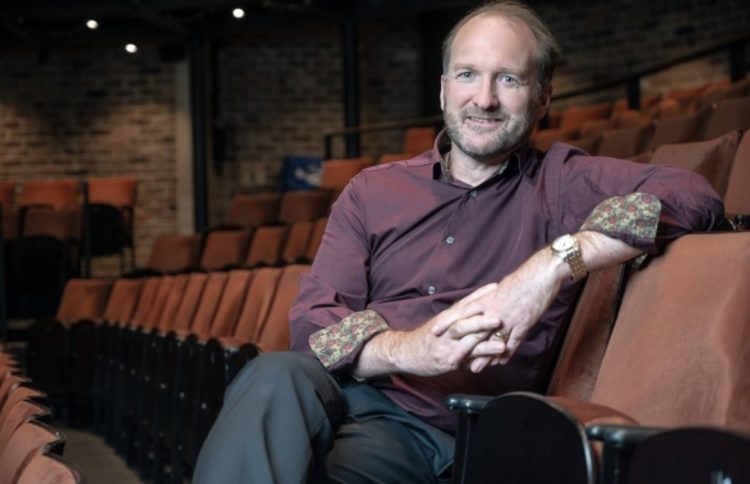
It was in early June when it became clear that the Epstein in Hanover Street, run by Epstein Entertainments, was doomed. Artistic director Bill Elms had made a huge effort to secure a financial lifeline from Liverpool City Council but was unsuccessful.
Writing on Facebook at the time, Bill said: “It’s heartbreaking that the theatre is forced to close when there’s such positive signs of growth and stability, but without the city’s financial support the costs are unworkable.”
Originally opened as Crane’s Music Hall in 1913, the Epstein was later known as the Neptune Theatre. In the late 1990s the 400-seat venue was renamed in honour of the former manager of The Beatles, the late Brian Epstein.
It had been threatened with closure several times over the years. In May 2011 it reopened following a £1.2m refurbishment. Epstein Entertainments was awarded the contract to operate the theatre on behalf of Liverpool City Council in October 2018.
The council leased the building to a commercial property landlord and then subleased the Epstein Theatre back from them.
Since the 1960s, the authority has always financially supported and subsidised the theatre. Most recently this figure was an excess of £100,000 per year. However, given the council’s own precarious financial position, continuing to fund it was no longer possible.
Epstein Entertainments had asked the council to continue its support for the theatre at £50,000 a year for the next five years. But this request was turned down.
At the time it shut its doors Bill Elms said he felt “sad and angry”. Half a year on and Bill is left with a sense of an opportunity lost. He explained: “There is still a massive gap in the market for a venue such as the Epstein.
“I know the theatre industry and local producers are feeling that. If you look at projects that I am working on, I want to start these shows in my own city but which theatre can I put them into?
“The Epstein Theatre was the perfect size – 400 seats – and it has left a massive gap in the city. And people are constantly contacting me to ask ‘any news, any news?’. Sadly, it did not add up as a business venture for a commercial producer.
“It just doesn’t work because of the capacity and the rent and the service charge being asked for by the tenant. It is actually a council building and that is what makes it quite frustrating.
“All we were asking for from the council was a contribution. We were quite prepared to make up the rest ourselves.”
Not unsurprisingly, Bill says the COVID pandemic was a major factor in the theatre’s demise. Although Epstein Entertainments won the tender from the council pre-pandemic its didn’t actually sign the agreement until after the pandemic.
Bill and his team should have had four-and-half-years to create momentum at the Epstein. In the end they had just 15 months.
“Without the pandemic I don’t believe we would have ended up in that position,” added Bill. “So what we were asking for from the council was some assistance to get us through that period because of the three years that we had lost.
“Everything that we were programming for the Epstein was the right product for that venue size, whether that be commercial touring theatre or local companies that have had huge success in smaller studio spaces and had somewhere to step up to.
“Where do they have now? They have nowhere.”
Bill remains insanely busy. A veteran of the UK theatre industry with 30 years in the business, he has worked in ticketing and marketing for the UK’s biggest theatre companies.
In 2008 he set up Bill Elms Associates, a PR and marketing business focused on the arts and live entertainment. He has worked on behalf of numerous theatres, venues and festivals.
He is also now a successful producer and has co-produced tours of multiple shows including Epstein: The Man Who Made The Beatles and Jerry Springer – The Opera. In spring 2024 he will take two separate productions on a UK-wide tour.
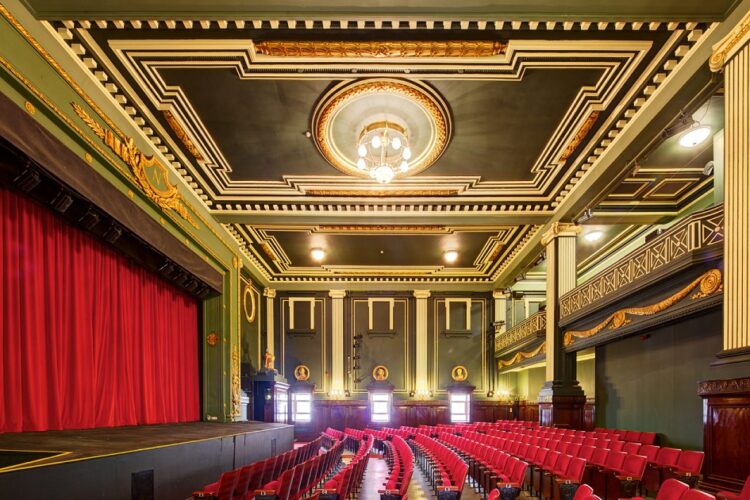

His experienced eye has picked up on a worrying post-pandemic trend. He said: “I think many venues have a very loyal audience but among an older demographic and I think that is where the big problem lies.
“We have just done an extensive tour of Helen Forrester’s By the Waters of Liverpool. Three years ago that was going to be a hugely successful tour. Bringing it back three years later the audience just wasn’t there. We are not sure why.
“It seems like not enough of that older demographic have come back to the theatre. It means you have to look at new and inventive ways of creating theatre to bring a different audience in.
“To do that you need support. It is a huge gamble. There are not enough opportunities for funding to create stuff for a much younger audience.
“People still want to see the feelgood shows – they want to see comedy and they want to see music. That is the feeling that I am getting at the moment.
“If you look at shows such as Sunset Boulevard, which has just reinvented itself, as well as Evita, those big tours are still selling and I believe the Liverpool Empire is doing phenomenal business.”
For his own part Bill responded to the pandemic by setting up the Liverpool Theatre Festival. It was centred around St Luke’s Bombed Out Church in Liverpool city centre and has been very well received. Mark Da Vanzo said Bill had done a “wonderful job” on the festival.
“I want to bring the Liverpool Theatre Festival back in 2024,” said Bill. “What I love about it is that it brings people out to see theatre performances in different or unusual spaces.”
Before Christmas crowds flocked to see star actors Ralph Fiennes and Indira Varma perform in Shakespeare’s Macbeth at The Depot, a pop-up studio space in Edge Lane in Liverpool.
READ MORE: VisitEngland gives top marks to Mersey Tunnel tours
Bill was pleased to see how successful it was but it also underlined his sense of loss at the closure of the Epstein. He added: “It is hugely frustrating that we have just had Macbeth in a temporary venue and we are closing a permanent venue.
“There is a possibility of the Epstein coming back but I think you would have to look at the internal structure before that happens. It has been stripped of all of its lighting so anyone who goes in there now is going to face an even bigger expense.
“What I have found from touring around the UK is that if audiences have a real trust in a particular venue, and what they programme, you find that ticket sales are so much better.
“The Epstein is a cultural gem – it has been there for more than 100 years and I think it needs to remain as a theatre. It is hugely missed.”

